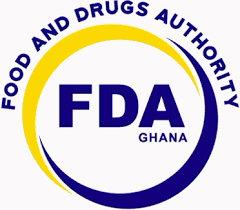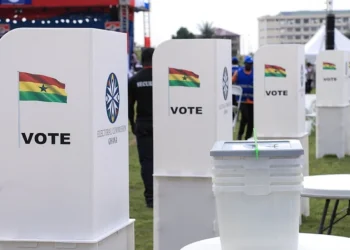The widespread circulation of fake diapers in Ghana has triggered a strong warning from the Consumer Protection Agency (CPA), which has raised alarm over the severe health implications these defective products are causing for babies and children across the country.
According to the CPA, an investigation initiated in response to parental complaints has uncovered shocking details about the origin, condition, and impact of these fake diapers, prompting calls for immediate regulatory intervention.
In a press statement, the CPA expressed gratitude to the Food and Drugs Authority (FDA) for recently stepping up enforcement actions.
The FDA has reportedly seized and incinerated over one million pieces of substandard diapers in a series of operations meant to stem the tide of these dangerous products.
However, the CPA insisted that more must be done to eliminate fake diapers entirely from the Ghanaian market.
“Following complaints from mothers nationwide regarding skin rashes, discomfort, and infections associated with the use of certain baby diapers, the CPA initiated an intensive investigation.”
Consumer Protection Agency (CPA)
The investigation covered five key regions—Greater Accra, Kumasi, Tamale, Sefwi Wiawso, and Sunyani.
According to the CPA, microbial tests conducted on several diaper brands sold in local markets revealed alarmingly high contamination levels. “The results were deeply alarming,” the Agency reported.
Many of the fake diapers tested were found to have been previously rejected during manufacturing in their country of origin due to quality failures.
These items, intended for destruction, were instead retrieved from waste disposal sites, repackaged in generic plastic bags, and smuggled into Ghana.

Beyond their questionable origin, the CPA revealed that the storage and transportation conditions of these fake diapers are equally unhygienic.
This not only compromises the product’s integrity but also exposes infants to serious microbial contamination.
In some reported cases, children experienced painful diaper rashes around sensitive areas, progressing into infections that, if untreated, could become life-threatening.
“Are the over 5 million babies and toddlers in Ghana not deserving of clean, safe, and hygienic diapers? Must our children suffer just because unethical importers prioritize profit over health?”
Consumer Protection Agency (CPA)
The CPA’s findings come amid growing consumer fears and rising complaints from parents.
Urgent Policy Push Over Ghana’s Fake Diapers
Furthermore, the CPA made an impassioned appeal to Ghanaian parents—especially mothers—to stop purchasing unregulated diaper products.
The Agency urged families to be vigilant and avoid contributing to a dangerous black market that profits at the expense of child safety.
Additionally, the CPA called on the Customs Excise and Preventive Service (CEPS) to tighten controls at all ports of entry to intercept fake diapers before they reach store shelves.
The group emphasized that pediatric health must be treated as a national priority, not a secondary concern.

“We call on all Ghanaian parents—especially mothers—to immediately cease patronizing these unregulated and dangerous products. Let us collectively protect our children from further harm.”
Consumer Protection Agency (CPA)
The Agency added that unless concrete measures are enforced at the borders and within the distribution networks, fake diapers will continue to circulate, undermining public health and endangering Ghana’s youngest and most vulnerable citizens.
In reiterating its commitment to child safety and consumer rights, the CPA once again praised the FDA’s vigilance and proactive stance.
The Agency also expressed its readiness to collaborate with the FDA on a comprehensive national campaign aimed at eliminating fake diapers from the market permanently.
The proposed joint campaign would focus on public education, intensified border inspections, and stricter monitoring of retail outlets.

The CPA also hinted at pursuing legislative avenues to enhance regulatory frameworks governing imported childcare products.“Together, we can ensure a safer and healthier future for every Ghanaian child.”
As public attention continues to grow around the issue of fake diapers, it is clear that addressing the problem will require a multi-stakeholder approach involving government regulators, customs authorities, health professionals, and most importantly, the general public.
While enforcement is essential, consumer awareness and behavior change will play a pivotal role in shutting down this dangerous trade and ensuring every Ghanaian child has access to safe, hygienic products.
READ ALSO: AFREC Partners Sweden to Boost Africa’s Energy Sector




















